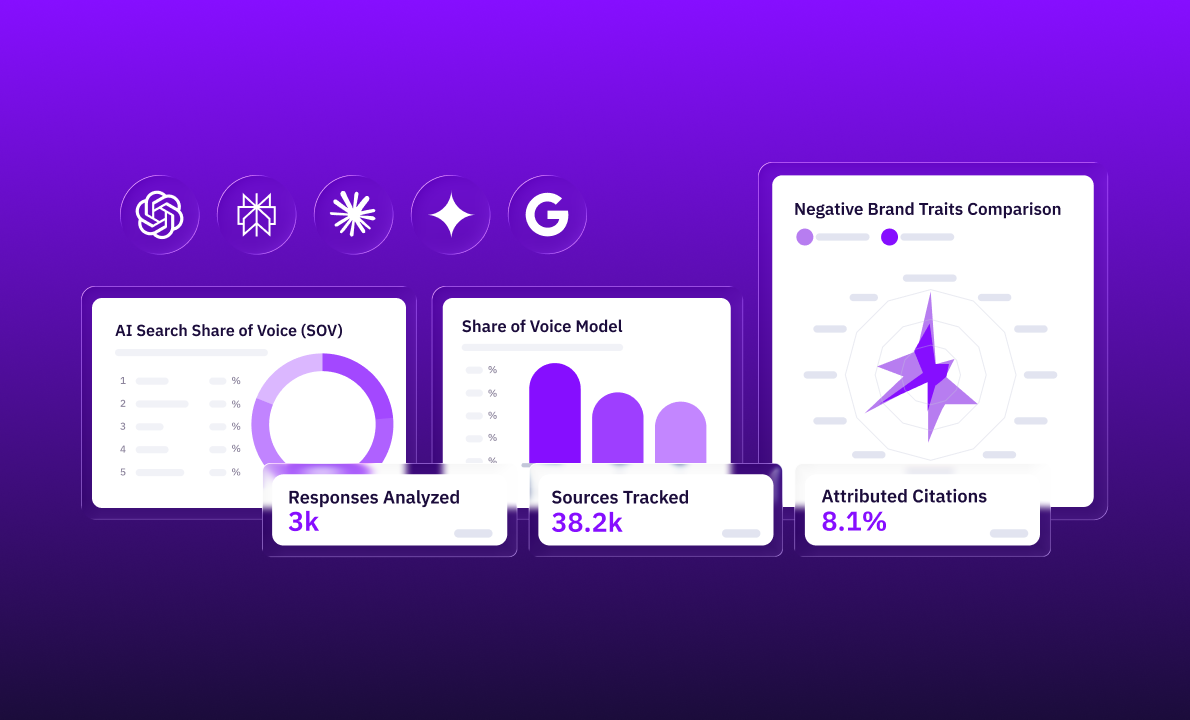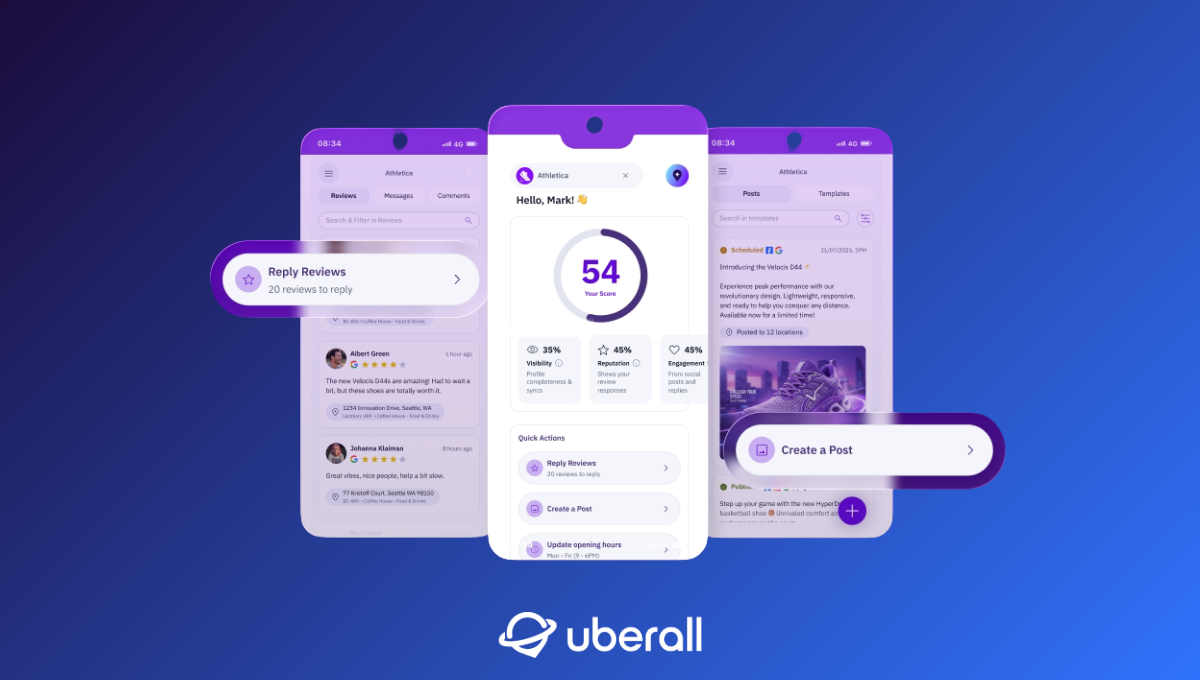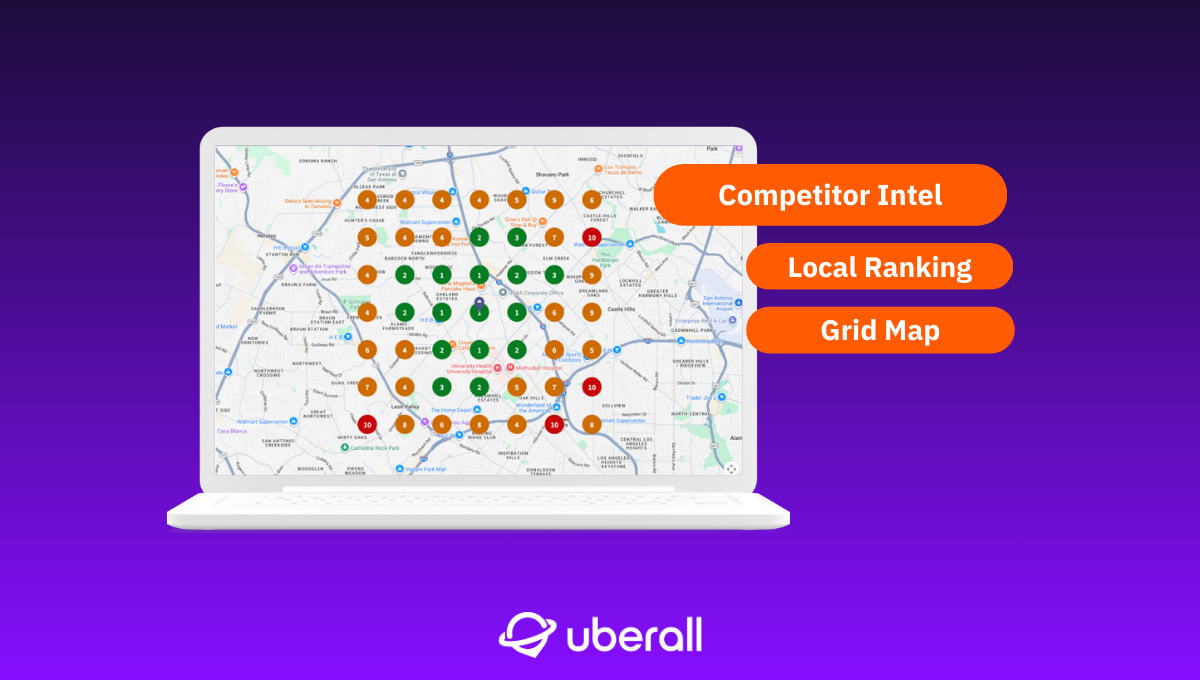
Branded vs Unbranded Search: Is it Better to be Known or Found?
We analysed 450,000 small businesses to understand how consumers search for them. If you are interested in increasing online visibility, you need to read…
Is it better to be known, or found? The answer is of course, both. We analysed 450,000 small business locations to understand how consumers search for and find small businesses locally. Whether you are trying to improve marketing as a small business or you manage the local marketing efforts of small businesses, you need to see this study.
An Introduction to the Report
For small businesses that are trying to grow, the challenge has never been greater, nor has the opportunity. That’s because when a consumer visits an offline store location, they go online and use their mobile phones to find a local businesses near them.
Because of this massive change in the way consumers search for local businesses, smaller businesses can now compete with large brands. That’s because, for the most part, consumers aren’t looking for specific brands when they begin their searches, they are looking for products and services they need at the exact moment they need them.
What Is a Branded and What Is an Unbranded Search?
When we are talking about branded and unbranded search, we are looking at what that means in local search.
When a consumer searches for products, services or specific business names that brings up Google My Business Profiles on Google Search, this is defined as a 'local search'.
Unbranded Search:
- A product or service search ("coffee near me", "clothes near me", "supermarket near me", "hair salon in my area" etc...these are unbranded searches)
- When a consumer searches for a specific business location this is known as a 'direct search' and is also categorised in our study as unbranded (this could be a search for small business name that achieves a single result "Jack's Coffee house" or it could be a more specific search for a global brand location "Starbucks Beach Street San Fran")
Branded Search:
- A search for a business name that brings up a list of results just for the locations of that brand (Starbucks, McDonald's, Adidas etc...)
- A search for a business name that brings up a list of results that brings up those brand locations and other locations (including other large brand and small business locations)
Why Did We Focus on Small Businesses?
Last year Uberall created the Reputation Management Revolution: Global Benchmark Report, which analysed the impact of reviews on small businesses, enterprise companies and global brands. In that study we found that small businesses were the best at engaging with customers at the local level.

While global brands have been slow to react to the changes in consumer search and engagement, small businesses tend to be quicker to adapt and understand the need to optimize their online presence and engage with customers that are engaging with them.
We knew that small businesses were good at engaging at the local level, but how were consumers searching for and finding those businesses to engage with them?
And so...the Branded vs Unbranded Search Report was born out of a desire to understand how small businesses could get more local visibility and engagement online.
The Small Business Findings in Brief
- Total visibility in local search is growing
- On average, small businesses are far more visible for unbranded search than for branded search
- It may come as a surprise that as we break our findings down by industry, we found that some single location businesses can have as much as 50% branded search meaning that large brands are responsible for a lot of their visibility
- Third parties really make a huge difference on the visibility of single location businesses online
Branded vs Unbranded Search
Although small businesses have half the amount of branded search that large brands receive, it is important to note that single location businesses are more likely to be gaining that 20% visibility for searches for larger competitors in their industry.
Small business locations receive by far more unbranded search than branded:
81% of search is unbranded
19% of search is branded
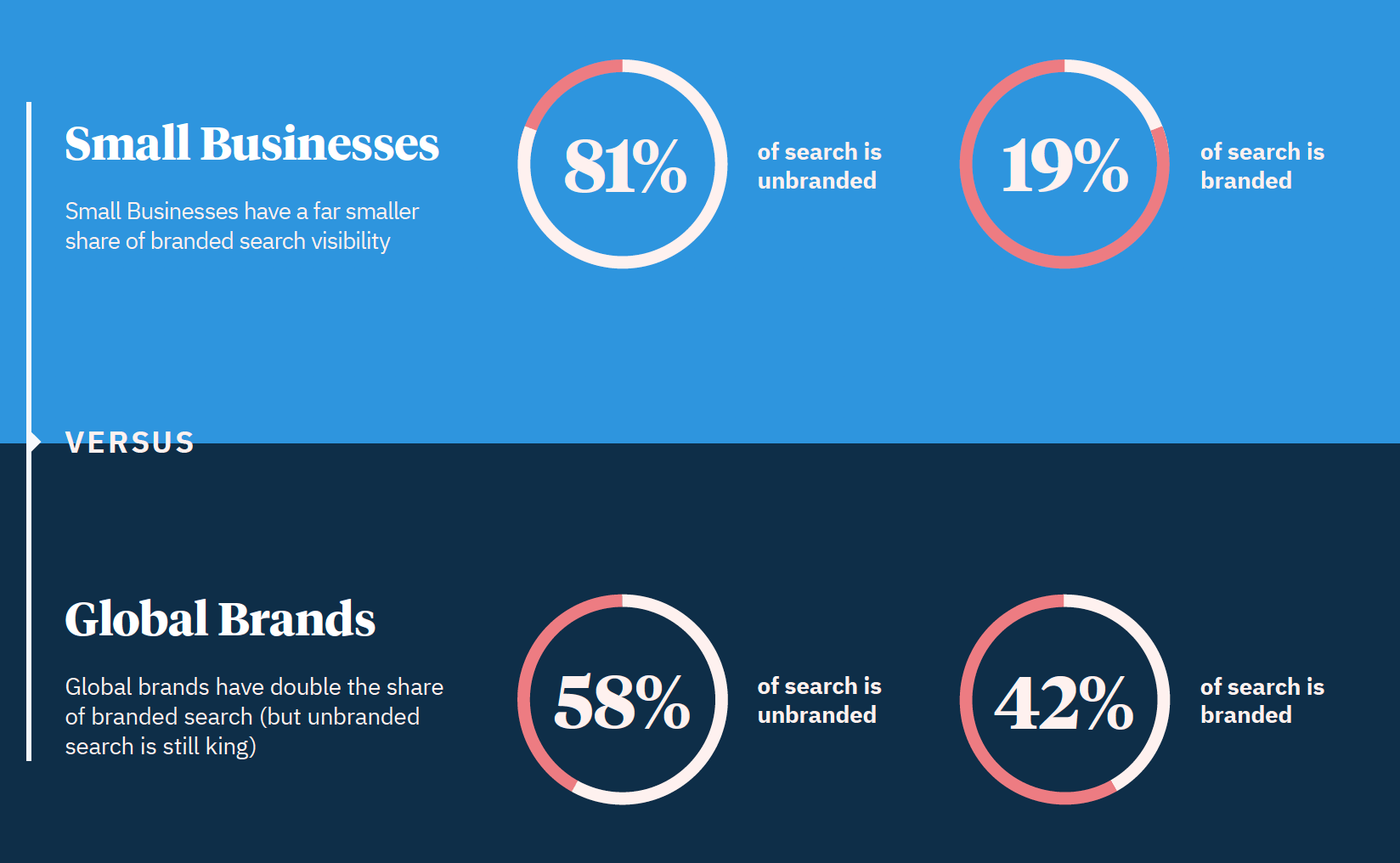
Single location businesses aren't receiving branded searches from consumers searching directly for them, but rather these searches are more likely visibility gained from larger brands in local search (maybe they are a small retail store that sells Adidas so they become visible for local Adidas searches), or they are potentially affiliated with a large brand when it comes to their name or the services they provide (like an insurance broker that is affiliated with a larger brand)
Branded search is also much different when we break it down by industry...
Some Small Businesses Are Achieving High Amounts of Branded Search
When we looked at branded vs unbranded search across industries, we found that online visibility can mean very different things, depending on different business models.
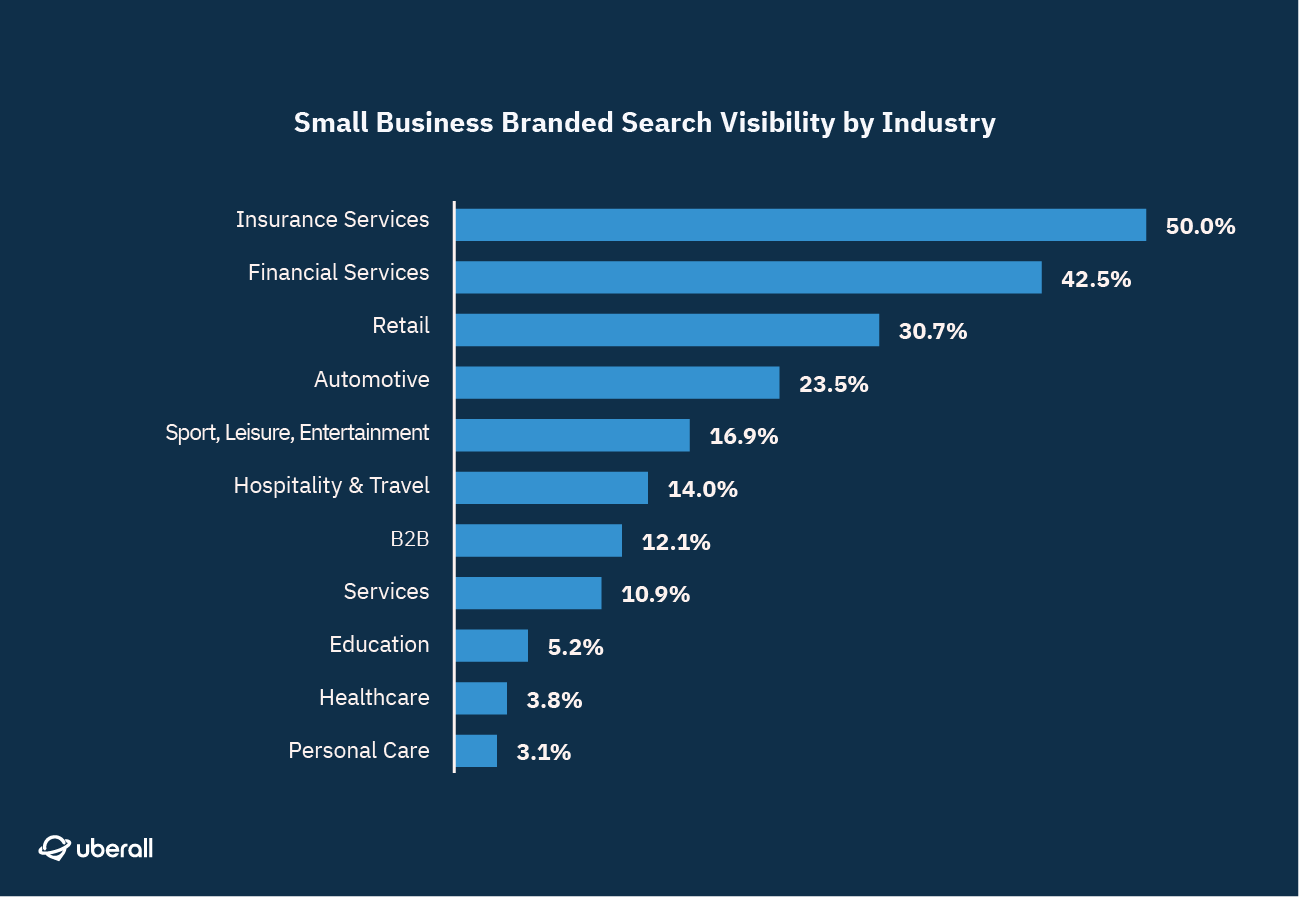
- Insurance Services had half of search (50%) coming from branded searches
- Personal Care locations had almost no branded search (3%)
This can be partially explained by a few factors:
- Small businesses in some industries are affiliated with global brands (small business brokerages that trade off the name of a large brand)
- Small businesses, in the retail industry for instance, are likely to sell global brands through their locations (a clothes store might sell Adidas gear) so that when a consumer searches for a particular clothing brand, a small clothing shop shows up as an option.
Small Businesses Are Gaining Greater Visibility in Online Local Search
We also analysed all 450,000 locations across a one year period and found that the average visibility for single location businesses was increasing:
Branded Searches Increased by: 115%
Unbranded Searches Increased by: 66%
Total visibility increased by: 75%
Why is this important?
Not only is this a major growth indicator for small businesses , but it also gives us a greater understanding of how Google is prioritising the growth of local search and local advertising. Although it is difficult to read too much into the fluctuating nature of local search visibility (based on Google algorithm changes), small businesses are growing their online visibility and need to take stock of this in their growth strategy.
Third Parties Supercharge Small Business Visibility
Visibility is growing, but by using a third party it could grow even more. All 450,000 locations we analysed were managed by Uberall and are customers of our current partners.
We measured their online visibility and engagements 6 months before they were managed by Uberall and 6 months after and found...
- 70% increase in total visibility from the previous 6 month period
- 68% increase in unbranded search visibility
- 82% increase in branded visibility across this period where previously, in the 6 months before using Uberall, single locations only improved their branded search by 4%....
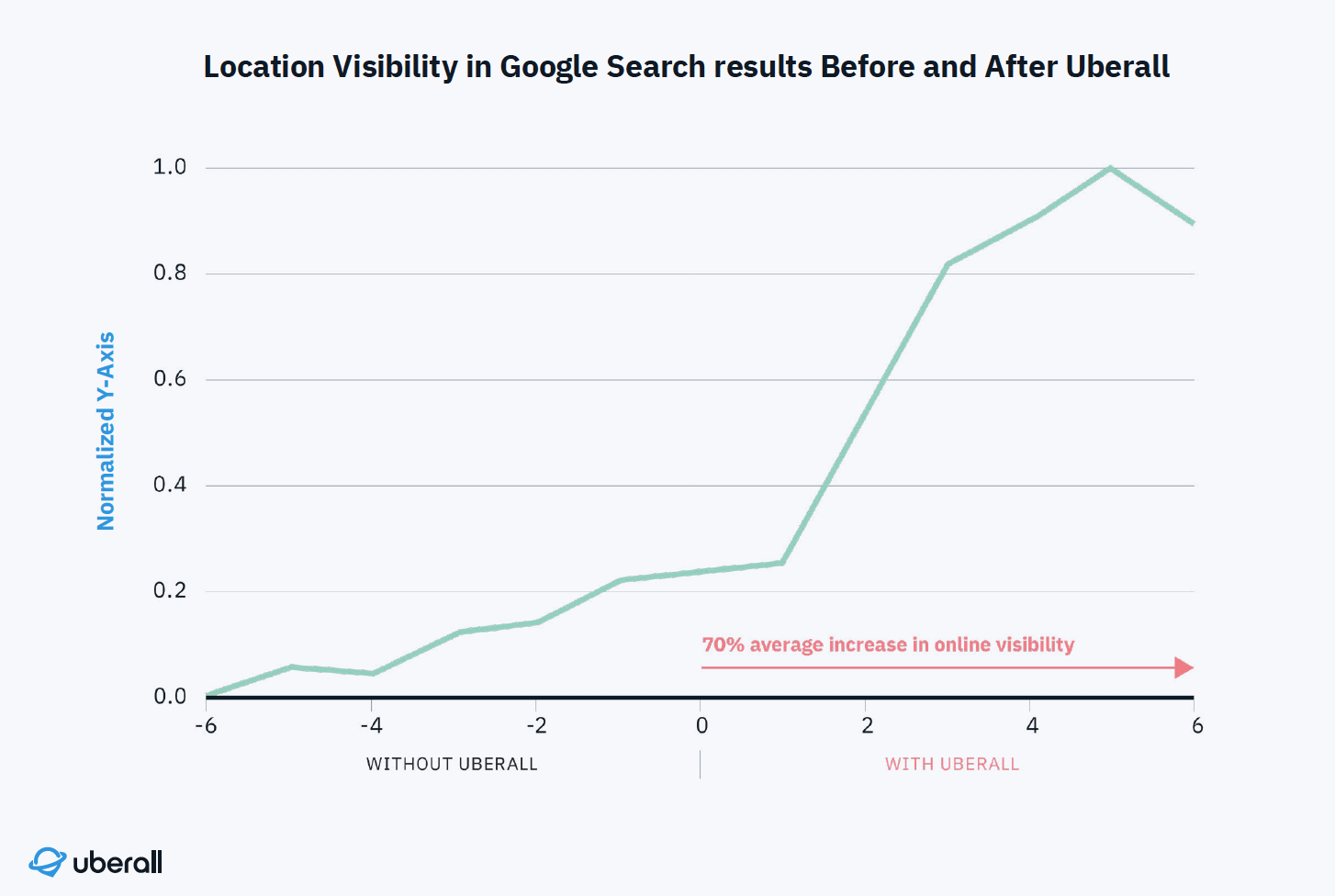
Conclusion
In summary, when we wrap up our findings, three things are apparent:
- Visibility in local search is improving in both branded and unbranded search
- A third party has a massive impact on the online visibility of single location businesses
- Understanding the industry is crucial for understanding how your visibility will increase online
Small businesses need to focus on their local strategy to ensure real growth for their business in the future. We work with partners all around the world to help them manage their customers' locations and we have had some great success doing it. The gains are real and measurable for our partners and their customers.
Report note: The data in this report does not address the shifting nature of search caused by the Coronavirus. This is intentional due to the temporary impact of this global event on local search and the large amount of existing data we have relating to online - to - offline consumer search trends. We also want to give businesses an insight into data that will have a large impact on future planning initiatives post Covid-19
Ready to Transform Your Business?
Connect with our partnership team to learn how Uberall can help you achieve similar results. Get a personalized consultation and discover the opportunities waiting for your business.
Resources








